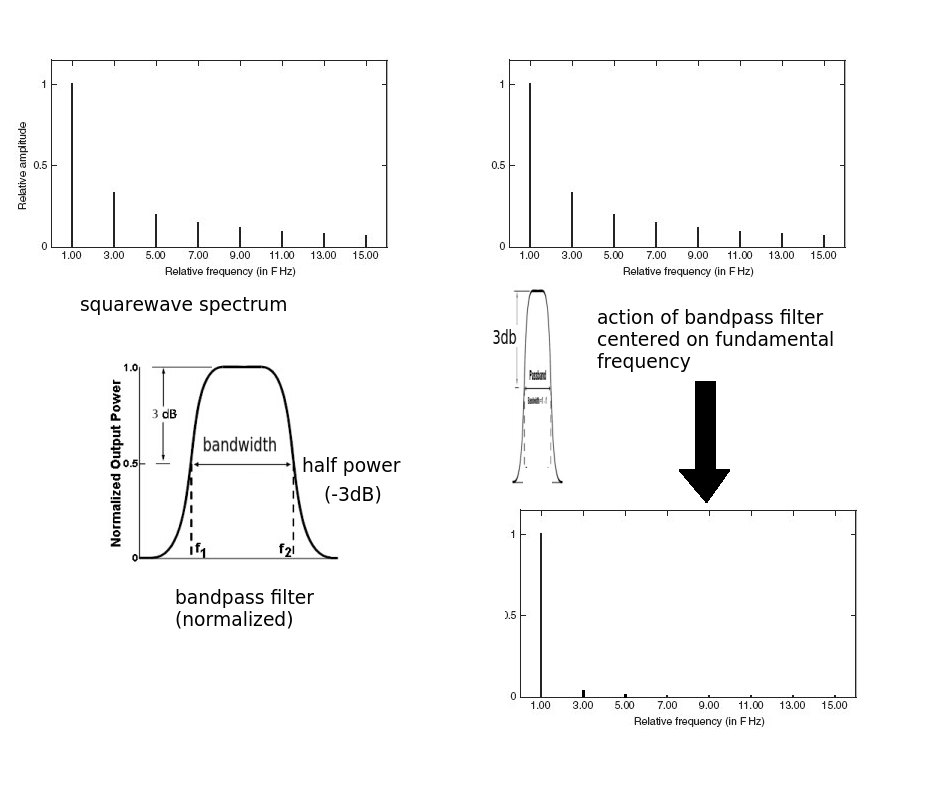In reading my text, it notes that, when a square wave of a certain frequency is applied to band pass/ band stop active op-amp filters:
Band pass filters will output the fundamental frequency of the square wave multiplied by the gain at the center frequency.
Band stop filters will carry all the harmonics of the square wave other than the fundamental.
I have some idea of what this means, but I would really like to see a graphical representation to confirm. I've searched my book, but it doesn't have any accompanying graphs. Not had any luck on the Internet either, though it may be a case of me searching for the wrong thing.
Can anyone help me out? It would be greatly appreciated!


